2016 Award and Challenge Winners
Hello Cloud
Congratulations to the monthly Hello Cloud drawing winners:
September
Alberto M.
Spain
October
Jayashree J.
India
November
Firas M.
Tunisia
December
Jozef K.
Ireland
January
Jose E.
Colombia
February
Prabhath M.
Sri Lanka
March
Attila G.
Romania
April
Peng Z.
China
May
Abdurrachman M.
Indonesia
June
Jerson O.
Guatemala
Big Idea: Pitch
Winner of 2016 Big Idea: Pitch Challenge
Digital Interactive Games
South Africa
In the Games category, our winner is Team Digital Interactive Games from South Africa. Their project, Of Dragons and Sheep, is a fast paced 3D sidescroller where the hero must save his beloved sheep from the vicious dragons.
Winner of 2016 Big Idea: Pitch Challenge
Octave
France
In the Innovation category, our winner is Team Octave from France. Their project, Octave, provides a new way to learn and practice playing the piano.
Winner of 2016 Big Idea: Pitch Challenge
Green Tech
Sri Lanka
In the World Citizenship category, our winner is Team Green Tech from Sri Lanka. Their project, Waste Management, will help solve waste management issues in Sri Lanka.
2016 Big Idea: Plan Challenge

Winner of 2016 Big Idea: Plan Challenge
Monolight
Indonesia
In the Games category, our winner is Team Monolight from Indonesia. Their project, Monolight, is a 2D illusion based puzzle adventure game.

Winner of 2016 Big Idea: Plan Challenge
TrollBusters
Slovakia
In the Innovation category, our winner is Team TrollBusters from Slovakia. Their project, moderateIT, is an automated moderation tool that can detect inappropriate conversations online.
2016 Big Idea: Design Challenge
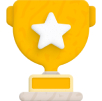
Winner of 2016 Big Idea: Design Challenge
Digital Interactive Games
South Africa
In the Games category, our winner is Team Digital Interactive Games from South Africa. Their project, Of Dragons and Sheep, is a fast paced 3D sidescroller where the hero must save his beloved sheep from the vicious dragons.
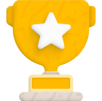
Winner of 2016 Big Idea: Design Challenge
YOM
Australia
In the Innovation category, our winner is YOM from Australia. Their project, Yesterday Once More, which helps people with dementia to remember.
Imagine Cup Earth: Round 1
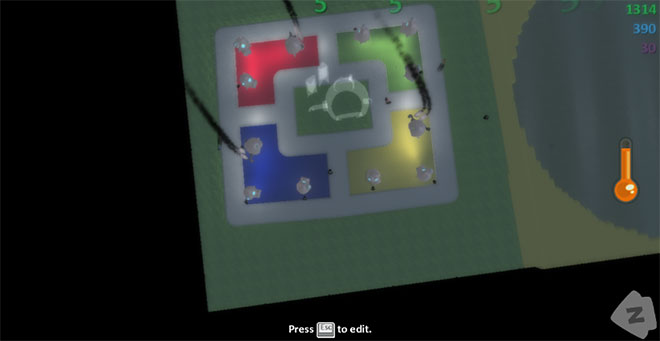
First Place Winner - Beginner
George R.
Romania
George, a 12-year old from Romania, used Kodu to build Project Eco Development. Addressing the many ways poverty holds back advancement, George built a city simulation that visually teaches that prosperity and growth are linked.
Project no longer available
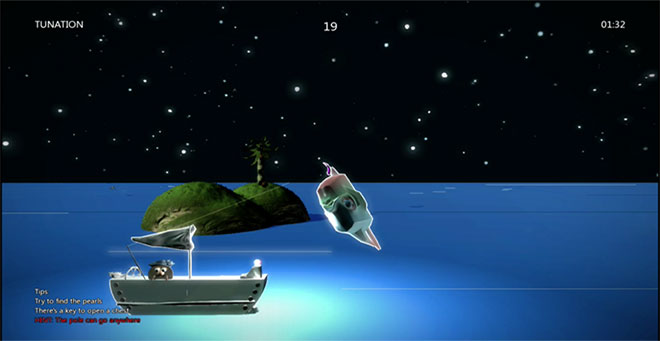
Second Place Winner - Beginner
Osamah M.
United States
Osamah, from the United States created the Project Spark game Tunation. “Tunation” is a fishing simulation game that aims to educate the players about the dangers of fishing for tuna when those fish are too young.
Project no longer available
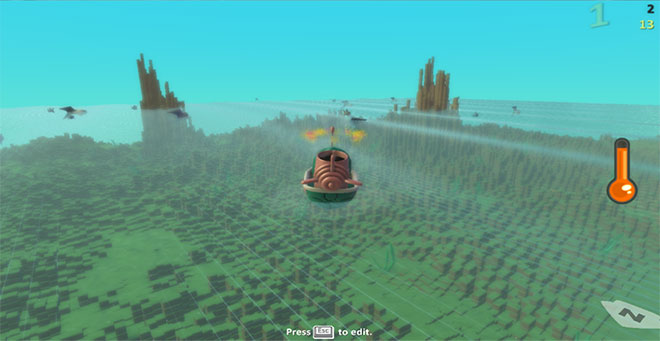
Third Place Winner - Beginner
Crystal M.
United States
Our third place winner is Crystal from the United States. She created Shadowing Tuna Boats using Kodu. In a simple and easy-to-play game, users must catch 10 mature fish to win. Judges liked the graphics, game play and the well thought out winning and losing scenarios.
Project no longer available
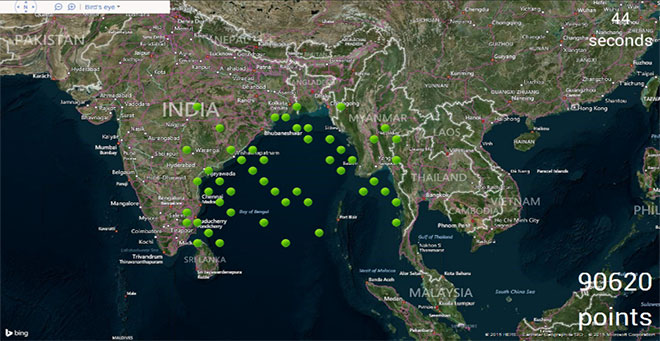
First Place Winner - Intermediate
Yeferson L.
Venezuela
Yeferson from Venezuela wrote an interactive game titled Inside NASA. Users become NASA agents preparing to battle a dangerous amount of growing algae. The game uses real NASA data and Bing maps. The judges thought the project delivered a fantastic introduction that puts context around a serious problem.
Project no longer available
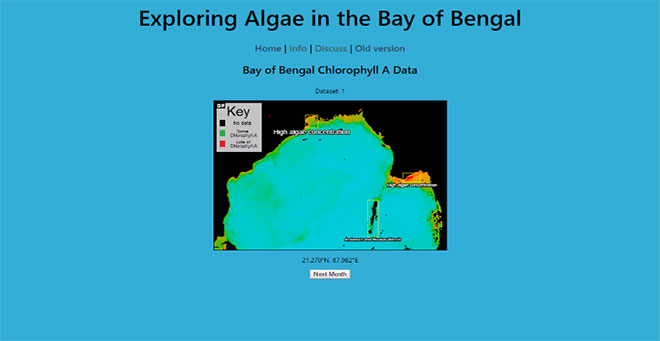
Second Place Winner - Intermediate
Ollie P.
United Kingdom
Ollie of the United Kingdom created a web app to visualize algae in a project called Exploring Algae in the Bay of Bengal. This app allows users to view and analyze algae data, highlight areas of interest and share their discoveries with others. Our judges liked how Ollie used HTML, CSS, JavaScript and PHP to take the NASA earth data on algae levels and visualize it over time using Azure.
Project no longer available
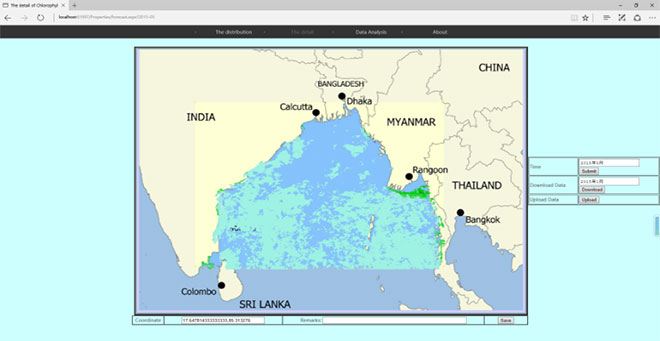
Third Place Winner - Intermediate
Yitao J.
China
Yitao from China made an Azure web application called Data Analysis and Forecast to visualize and forecast algae in the Bay of Bengal using NASA data. Yitao turned the data into dynamic visualizations that attempt to forecast the future of the algae growth in the Bay.
Project no longer available
Imagine Cup Earth: Round 2
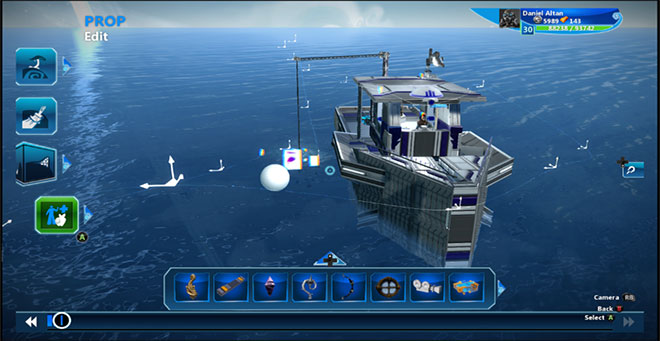
First Place Winner - Beginner
Daniel G.
Mexico
Daniel, a 15-year old from Mexico, designed Ode to the Tuna, a fun, highly detailed game with Project Spark. The player has 12 minutes to catch as many tuna as possible.
Project no longer available
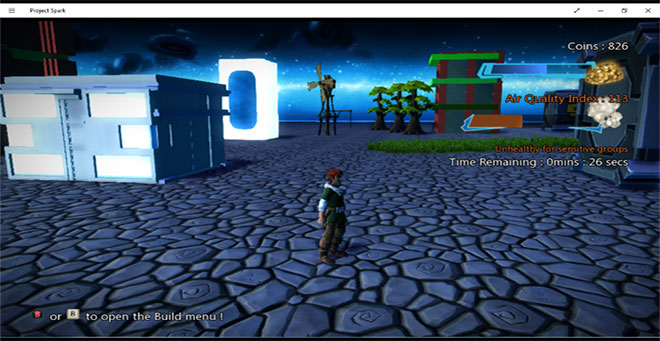
Second Place Winner - Beginner
Medhansh M.
India
Eight-year old Medhansh from India created Let there be light!, and says, “An economy can only prosper if mankind gives equal importance to development as well as the ecological welfare of our Planet Earth.”
Project no longer available

Third Place Winner - Beginner
Roofid P.
Indonesia
Roofid, a 16-year old from Indonesia, used Kodu to build Nutrient-Rich Waters for Fish a game that tasked players with a timed rescue mission. Controlling a small sea-faring pod, you navigate through narrow channels to transport fish from low-nutrient waters to nutrient-rich water.
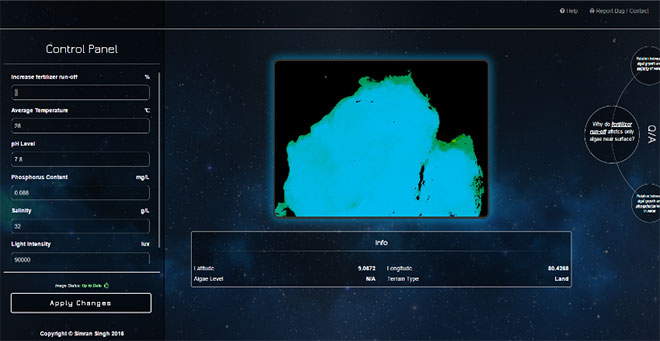
First Place Winner - Intermediate
Simran S.
India
Simran of India developed Project Vision, an application that uses data from NASA to predict algae growth in the Bay of Bengal. Our judges liked the high interactivity of the app, including its predictive question-and-answer sidebar and the variety of environmental conditions (like the temperature and salt content of the water) that users could manipulate.
Project no longer available
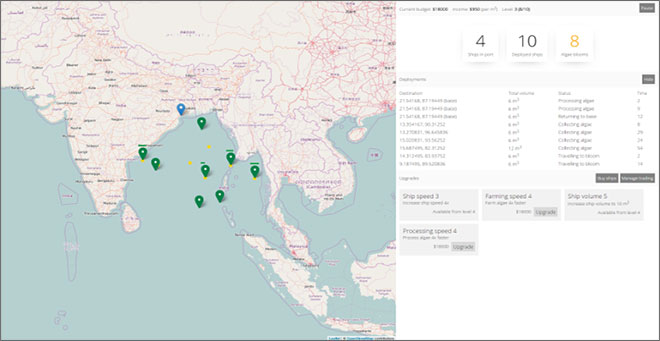
Second Place Winner - Intermediate
Peter N.
Poland
Using JavaScript, open source libraries and an application program interface (API) to calculate geographical distances, Peter of Poland created AlgaeRush a fast-paced strategy game that puts the player in the shoes of a manager at a biofuel production company. As the manager, players control and maintain a fleet of ships to harvest algae blooms in the Bay of Bengal to make biofuel.
Project no longer available
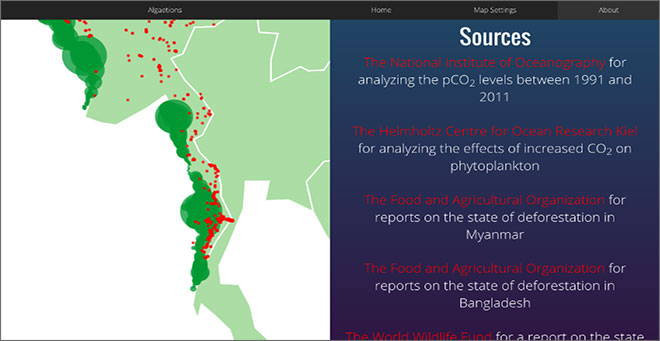
Third Place Winner - Intermediate
Omar S.
Saudi Arabia
Omar of Saudi Arabia used data from NASA and Forest Monitoring for Action (FORMA), hosted on Microsoft Azure, to create Algaetion, an informative application that allows users to adjust map settings to view specific months of algal growth and deforestation.
Imagine Cup Earth: Round 3

First Place Winner - Beginner
Bharat S.
India
Bharat used Kodu to teach players about sustainable tuna fishing. The game has three levels, the second and third of which are unlocked after you farm a certain number of mature tuna. In the game, you must feed the tuna so they grow, and once matured, the tuna are safe to catch. The judges were pleased with the interactive depth and multiple level structure of Bharat’s game.

Second Place Winner - Beginner
Kang-Seok C.
South Korea
Using Kodu, Kang-Seok designed a game that highlights the hazards of garbage-polluted oceans. Your job as the player is to save lobster habitats by cleaning up the trash that threatens them. Collect enough trash to earn nets that help the recycling process. Our judges were particularly impressed with how Kang-Seok used Kodu and the clear winning and losing scenarios.
Project no longer available

Third Place Winner - Beginner
Vishal D.
India
Vishal developed a game in Kodu that requires the player to harmonize the prosperity, pollution, population, power consumption and ecological balance of a town. Planting many trees keeps the pollution down, but without factories and houses, prosperity levels stagnate. Our judges enjoyed the strategy and replayability of Vishal’s game.

First Place Winner - Intermediate
Neil C.
United States
Neil designed an app that examines the impact of algae blooms in the Bay of Bengal. Using sliders, you can adjust the bay’s temperature and salinity, and the app simulates how algae might grow in the bay. The judges especially liked how Neil integrated Bing Maps within the app and how the app displayed the information on maps.

Second Place Winner - Intermediate
Raymond Y.
United States
Raymond used a combination of HTML, Python CGI and C to create three apps that explore the cause and impact of algae growth. One app demonstrated the factors that contribute to algae growth. Another highlighted the impact of algae on the bay, and the third app showed the actual data. Raymond’s use and visualization of NASA’s data caught our judges’ eyes, and they were impressed by the thorough introduction to the issue of algae blooms.

Third Place Winner - Intermediate
Prateek B.
India
Prateek created an app that draws connections between the algae blooms in the Bay of Bengal and the level of danger those blooms pose. You select the coordinates and month you want to investigate, and the app populates a spreadsheet with water temperatures and a prediction as to why the blooms occurred. Judges liked how Prateek correlated the NASA dataset into a simple format.
Project no longer available


